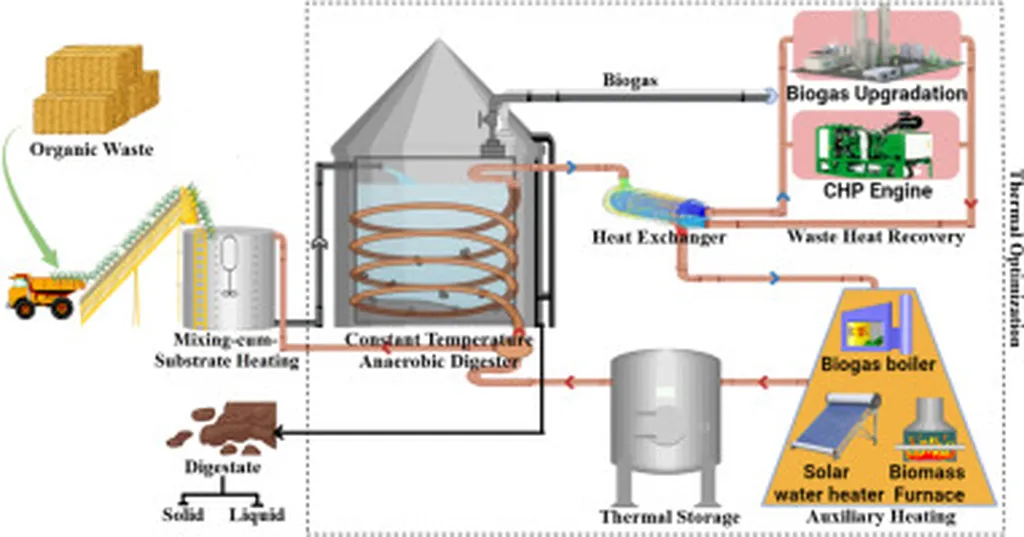In a significant stride towards sustainable maritime operations, researchers have turned to biogas as a promising alternative fuel for diesel engines, particularly in dual-fuel configurations. A recent study led by Khac Binh Le from Vinh University of Technology Education in Vietnam, published in the *International Journal of Renewable Energy Development* (translated from Vietnamese as *International Journal for the Development of Renewable Energy*), delves into the application of supervised machine learning techniques to predict the performance and emission characteristics of biogas-powered dual-fuel diesel engines.
The study explores various machine learning models, including random forest, lasso regression, and support vector machines (SVM), to forecast engine performance metrics such as Brake Thermal Efficiency (BTE) and Brake Specific Energy Consumption (BSEC), as well as emissions like carbon dioxide (CO₂), carbon monoxide (CO), and nitrogen oxides (NOx). The results are promising, with the random forest model consistently outperforming others across multiple criteria.
“Random Forest has shown better performance for Brake Thermal Efficiency (BTE) with a test R² of 0.9938 and a low test MAPE of 3.0741%,” noted Le. This high accuracy in predicting BTE is crucial for optimizing engine performance and ensuring efficient energy use. Similarly, the model demonstrated exceptional prowess in estimating BSEC, with a test R² of 0.9715 and a test MAPE of 4.2242%, underscoring its reliability in performance prediction.
The study also highlights the model’s effectiveness in emission forecasting. For CO₂ emissions, the random forest model achieved a test R² of 0.9821 and a test MAPE of 2.5801%, making it the most accurate among the tested models. The model also showed strong performance in predicting CO and NOx emissions, with test R² values of 0.8339 and 0.9756%, respectively.
The implications for the maritime sector are substantial. As the industry grapples with stringent environmental regulations and the pressing need to reduce greenhouse gas emissions, the adoption of biogas as a fuel alternative presents a viable solution. The use of machine learning models to predict engine performance and emissions can significantly enhance the efficiency and sustainability of maritime operations.
“Random Forest showed the most consistent performance overall criteria,” Le emphasized. This consistency is vital for the maritime industry, where reliable performance predictions can lead to better decision-making, reduced operational costs, and minimized environmental impact.
The study’s findings open up new avenues for the maritime sector to explore biogas as a fuel option, leveraging advanced machine learning techniques to optimize engine performance and reduce emissions. As the industry continues to seek innovative solutions to meet environmental challenges, the integration of biogas and machine learning models offers a promising path forward.

